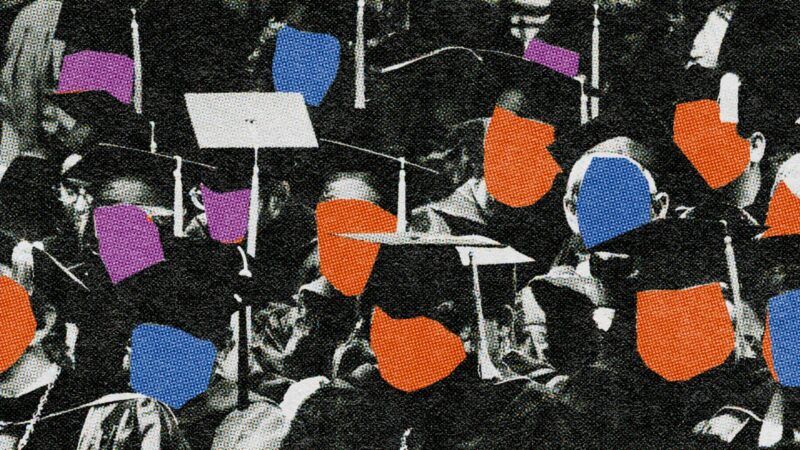Florida's College Intellectual Diversity Survey Is Good, Actually
No, it’s not an attempt to monitor faculty and student views. It’s an attempt to make sure they’re allowed to express them.

The culture-warring between Republican Florida Gov. Ron DeSantis and progressive educators reached a new level this week as the governor signed a bill to evaluate "intellectual diversity" at public colleges.
Or did it?
Certainly that's what this story in the Tampa Bay Times suggests. The Washington Post also presents it that way. But this is more than merely a partisan fight over ideology on campus.
On Tuesday, DeSantis signed the Intellectual Freedom and Viewpoint Diversity Assessment into law. DeSantis commented at a press conference that day that colleges have become "hotbeds for stale ideology." He added, "It used to be thought that a university campus was a place where you'd be exposed to a lot of different ideas. Unfortunately, now the norm is, these are more intellectually repressive environments. You have orthodoxies that are promoted, and other viewpoints are shunned or even suppressed."
The Times notes that DeSantis didn't provide any examples of this happening when he signed the bill. But Reason's Robby Soave just noted a training session at the University of Oklahoma that encouraged professors to stop students from saying things others might find offensive; the trainers even claimed that free speech does not apply in college classrooms. DeSantis and Florida lawmakers are not just inventing a problem here.
And while the coverage might give readers the impression that this law is of a piece with the governor's well-publicized assault on Critical Race Theory and his push to make schools develop civics programs that teach kids that communism is bad, the Florida bill's text shows that it isn't bad, shouldn't be particularly controversial, and probably wouldn't have gotten as much attention if it hadn't emerged amid all this fighting about what schools teach.
The bill does not mandate or punish the teaching of any particular point of view. Nor does it ask students or teachers what their personal views are. It requires state universities to conduct an annual survey to determine "the extent to which competing ideas and perspectives are presented and members of the university community, including students, faculty, and staff, feel free to express their beliefs and viewpoints on campus and in the classroom."
Schools could conceivably face financial punishment someday if the powers that be decide that they aren't intellectually diverse enough. But there's no actual penalty in the bill. This is not like Idaho yanking funding from colleges that allegedly teach Critical Race Theory. It's not even like Florida's own ban on teaching Critical Race Theory (or rather, what the Board of Education defines as Critical Race Theory) in secondary schools.
The Times piece gets a little bendy attempting to convince readers that this bill could be used to reward or punish individual professors for their views. The reporter insists that one of the bill's proponents, Sen. Ray Rodriques (R–Estero), is wrong when he says professors can't be punished because the bill "offers no assurances that the survey's answers will be anonymous, and there is no clarity on who can use the data and for what purpose." Except there's the entire First Amendment—and a bunch of Supreme Court case law—protecting professors from punishment for what they say as long as it's within the scope of their duties. That specific protections aren't included within this bill doesn't mean they don't already exist.
Over at The Volokh Institute, Jonathan Adler, law professor at the Case Western Reserve University School of Law, also takes issue with how the Tampa Bay Times has decided to characterize the bill's contents:
If the surveys called for in this bill facilitate actual assaults on academic freedom, any such assaults should be condemned. But the problem in such instances would be the actual assaults on academic freedom, not the effort to determine whether state educational institutions actually provide open learning environments. In recent years we have seen political activists abuse open records laws to pursue academics they did not like. The problem in such cases was not the existence of open records laws, but their political misuse. The same would hold true here.
The bill also expressly says that schools may not "shield students, faculty, or staff at state universities from free speech protected under the First Amendment to the United States Constitution." This wording would seem to by its nature to preclude firing faculty for their positions .
There may be a certain hypocrisy to banning Critical Race Theory from discussion in public schools while at the same time passing laws aimed at ensuring intellectual diversity on campus. But that doesn't make this new bill bad. If anything, the ideas behind it underline how wrong it was to try to control how public schools talk about racism in the first place.


Show Comments (113)